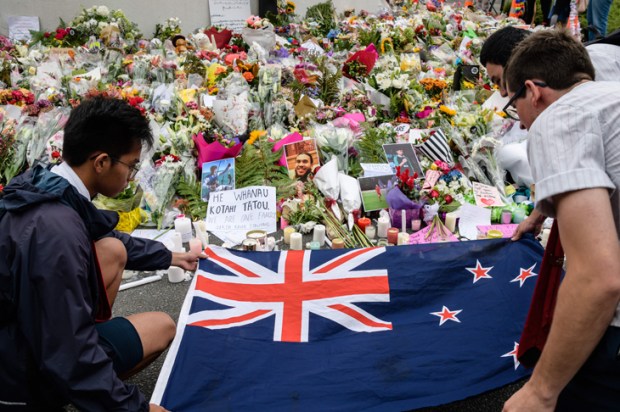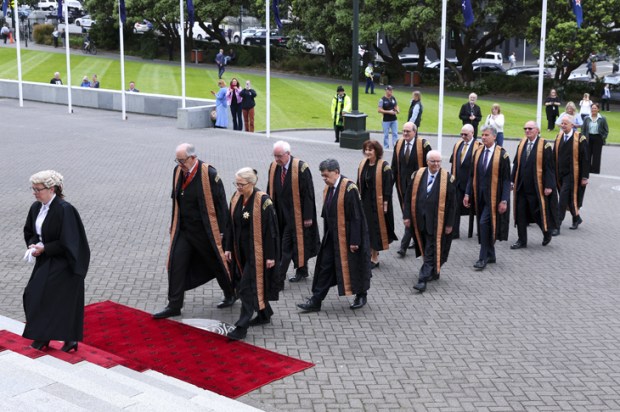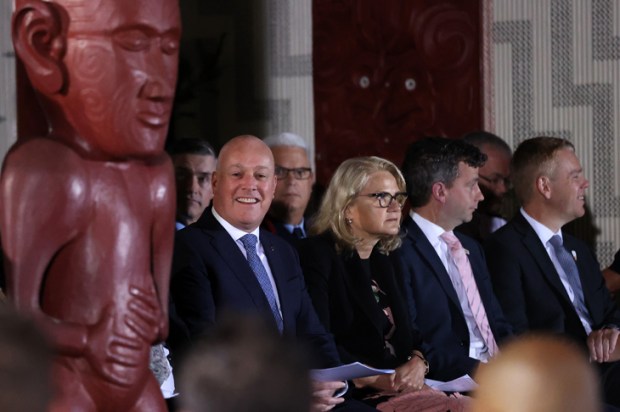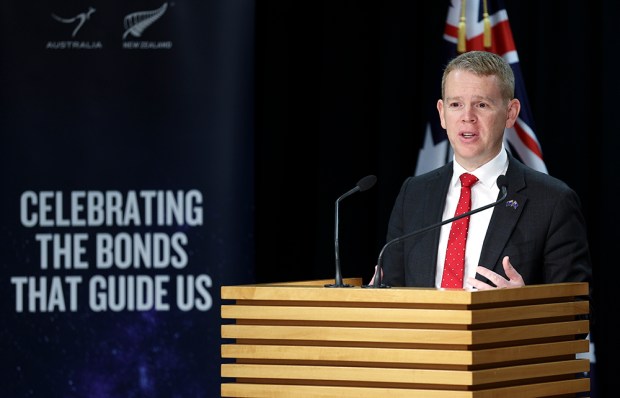October 14 was a good day to be a conservative on either side of the Tasman. On the same day that Australian voters emphatically rejected the Voice, New Zealanders jettisoned a chaotic Labour government.
In a classic contest between Labour’s aggressive radicalism and the mild conservatism of the centre-right National party, conservatism prevailed. After six years of upheaval, rancour and division, although more so in Labour’s second term than its first, New Zealanders were so disheartened that they were prepared to put their faith in a party led by a politician still in his first parliamentary term. The clear message was that Labour had gone too far, too fast with an agenda of radical change that was incompetently managed and often not mandated.
Not since the 1990 election had a New Zealand government been ejected from office after only two terms. That too was a Labour government in a not dissimilar state of disintegration.
Yet the 2023 election result was not straightforward. Probably the only things that can be said with certainty are that Labour was routed and National leader Christopher Luxon will be sworn in as the new prime minister. Beyond that, the final outcome is unclear.
National will govern in coalition with the small-government, libertarian ACT party, but the election-night results gave them only a paper-thin majority and it’s possible Luxon will have to do a deal with Winston Peters, whose socially conservative New Zealand First party rebounded after being ousted in 2020 and will have a potentially decisive eight seats in the new parliament. At the time of writing, on the day after the election, several electorates remained undecided and special votes that remained to be counted – mostly cast by New Zealanders living overseas – had the potential to trim the National-ACT coalition’s lead.
Overall, though, it was an emphatic renunciation of what is misleadingly called progressivism. On election night, National won 50 seats to Labour’s 34. It was a dramatic reversal of the result in 2020 (Labour 65, National 33), when National was in disarray and before the voters’ love affair with Jacinda Ardern turned sour.
Taking into account ACT’s eleven seats and the New Zealand First party’s eight, the election-night result signalled a re-assertion of what might be termed traditional values. National not only won back the provincial seats it had lost in 2020, but made deep inroads into the Labour heartland in Auckland. Labour will have considered itself lucky to retain the previously impregnable inner-Auckland seat of Mt Albert, formerly held by prime ministers Ardern and Helen Clark.
Complicating the picture this time was the influence of smaller parties. The Greens did well, winning 14 seats with 10.8 per cent of the overall party vote – the crucial factor under New Zealand’s two-vote electoral system – and securing an unprecedented three electorates, while the uncompromisingly radical Maori party further loosened Labour’s traditional grip on Maori voters by storming to victory in four of the seven designated Maori seats. In the process, the Maori party ousted two veteran members of parliament, including Foreign Affairs Minister Nanaia Mahuta, who were considered Labour and Maori royalty.
Wellington was the only metropolitan centre where the ‘progressive’ left prevailed. As well as having a mayor who was formerly the Green party’s chief of staff, the capital now has two Green-held electorates. In the entire Greater Wellington region, only one electorate was secured by the party that will form the new government. The city that is home to New Zealand’s army of public servants can thus be seen as significantly out of step with the rest of the country. What this says about the Luxon government’s prospects of rolling back Labour’s activist agenda is a matter of conjecture.
Significantly, media analysis on election night avoided any discussion of why Labour was so brutally put to the sword. The likely explanation for both the party’s humiliating defeat and the media’s reluctance to acknowledge the reason is that the policies Labour was punished for were ones that the liberal establishment, including the media, largely endorsed. Throughout Labour’s six years in office, the New Zealand mainstream media have been disinclined to report anything that reflected badly on the left. Only when Labour’s problems became too blatant to ignore – such as when a senior cabinet member crashed her ministerial car and left the scene before the police arrived, and another minister refused to disclose a conflict of interest involving shares – did the headlines turn negative.
Whether a Luxon-led government will act decisively to wind back Labour’s most contentious initiatives remain to be seen. National largely campaigned on bread-and-butter economic issues such as the cost of living, taxation and the price of houses. Luxon has shown no inclination to wade into the culture wars and it will likely fall to ACT and New Zealand First, if the latter party ends up in the government mix, to push back against the relentless tide of wokeism.
And what of Ardern? The former prime minister, now ensconced at Harvard, where she has taken up a fellowship in public leadership, was largely absent from the campaign. In the final weeks she made a brief video appearance in an obvious attempt to boost her successor Chris Hipkins’s chances, but it may have had exactly the reverse effect. Ardern’s electoral appeal, so celebrated by the international left, has lost its lustre at home. New Zealand is over her.
Even Hipkins has reason to be resentful. Ardern, possibly sensing the public mood was turning against Labour, unexpectedly quit while she was ahead last January and left him to clean up the mess. His long-term future must now be in doubt.
Labour’s precipitous decline can possibly be traced to the time Ardern’s government reacted with arrogant, Marie Antoinette-style disdain to the hundreds of New Zealanders who set up a camp in the grounds of parliament in protest at the totalitarian enforcement of restrictions during the Covid pandemic.
In a ‘basket of deplorables’ moment, one minister (the same one caught up in the conflict of interest scandal) referred to them as a river of filth. Once regarded as a potential prime minister, he has now lost his formerly safe seat – confirmation that sometimes there is poetic justice in politics.
Got something to add? Join the discussion and comment below.
Get 10 issues for just $10
Subscribe to The Spectator Australia today for the next 10 magazine issues, plus full online access, for just $10.
You might disagree with half of it, but you’ll enjoy reading all of it. Try your first month for free, then just $2 a week for the remainder of your first year.














Comments
Don't miss out
Join the conversation with other Spectator Australia readers. Subscribe to leave a comment.
SUBSCRIBEAlready a subscriber? Log in